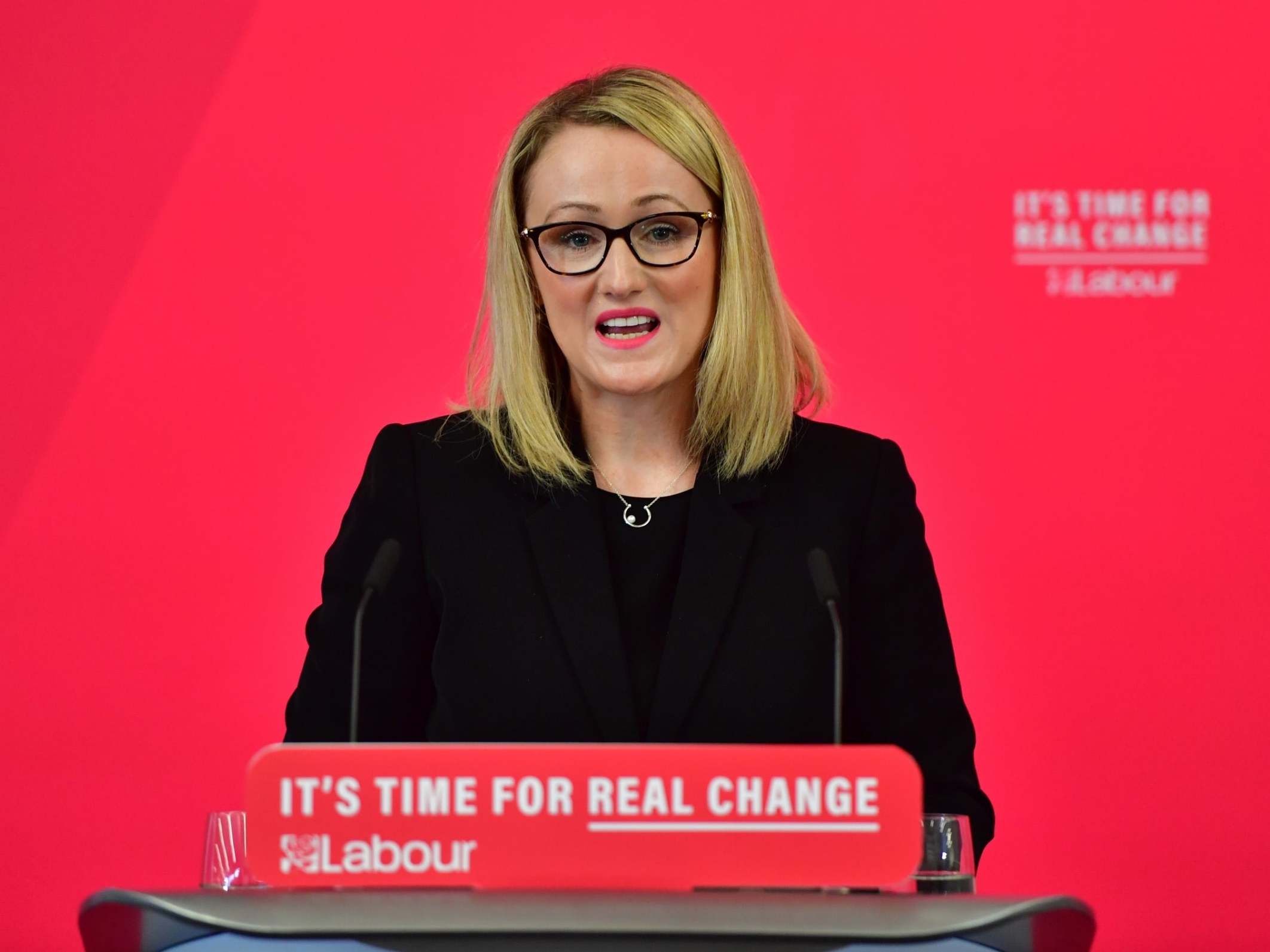Rebecca Long Bailey was one of the architects of Corbynism's best policies – and they offer the way forward
Whoever becomes Labour’s new leader must see the potential of the industrial policies the Salford and Eccles MP has led the way on


In a highpoint of the Jeremy Corbyn leadership’s output on domestic policy, the final days of the 2017 general election saw Labour publish a report entitled “Alternative Models of Ownership”.
The text diagnosed a country with unusually low productivity and wages, and beholden to an extractive and short-termist private sector, accountable to shareholders rather than to the ordinary people whose lives it determines.
It urged an expansion of the use of cooperative ownership of British companies and cited the model of Preston City Council in replacing big outsourcing firms with specially cultivated local businesses, incentivising higher wages and keeping wealth local.
Most Corbynites now admit to inertia and a loss of focus between 2017 and 2019. Yet a second highpoint must be the approval at the 2019 party conference of a “Green Industrial Revolution” policy, committing the party to seek zero emissions by 2030, and to do so with the labour of new well-paid, unionised jobs, planned along similar lines to those described in the earlier “Alternative Models” report.
By the time Labour returns to the polls in 2024, the problems that these two measures of “economic democracy” were designed to respond to will have worsened. Boris Johnson may be promising a geographical diversification of the economy in the hope of keeping the Tories’ new ex-Labour seats. But as Theresa May found, it is difficult to keep “tanks on Labour’s lawn” in any substantially material way, without clashing with the interests of the establishment that contributes to keeping the Tories in power in the first place.
Hope remains that Bernie Sanders will bring a “Green New Deal” to the world’s second biggest polluter. But the British left’s ambitions for a “Green Atlanticism” are gone for now, and if on the slim chance things are looking any better for the climate in 2024, Britain will have played little part in it.
Rebecca Long Bailey has now effectively announced her bid for the Labour leadership, amid criticism that she is the “continuity Corbyn” candidate. There are even threats that right-wing MPs will refuse to serve under “Corbyn’s anointed successor”. But it is less helpful to think of Long-Bailey as a figure of continuity, than to remember that as shadow business secretary, she was one of the key architects of Corbynism’s two that got away: the “economic democracy” policies of alternative ownership models and a green transition that could have given better direction to Labour’s post-2017 programme if they’d been given the centrality they deserved.
Corbyn is a very English “low church” socialist, motivated by a desire to help the poor and dispossessed wherever they are found. This is why so many Labour members like him, and why in defeat he still leads a movement in a way Gordon Brown or Ed Miliband never could. Yet watching Corbyn’s appearances during the 2019 election, I couldn’t suppress the fear that Corbyn’s habitual focus on austerity, foodbanks, and universal credit – rather than on the more structural “economic democracy” measures – would not sit well with those who do not care to be reminded of how bad things can be for people in the UK, and who automatically look for reasons to mistrust those who try to remind them.
How else to explain the eagerness with which many accepted the lie that the image of a child sleeping on coats in a hospital that embarrassed Boris Johnson late on in the election was a fake? In this and other cases, Corbyn’s inability to suppress the fact that his main motive is charitably helping the weakest encouraged the desire of some to think of him as personally hypocritical or duplicitous, and the problems he pointed to as exaggerated.
The “economic democracy” policies associated with Long Bailey offer a different path. Rather than figuring Labour as the ‘moral’ party, they place emphasis on the palpable inefficiency of the economy as it is currently organised – the corporate failures it rewards and the individual talents and local knowledge it wastes. This is while siding with local business against big outsourcing, appealing to the ‘entrepreneurial’ self-image of many in the UK. As the climate crisis worsens, the foresight of Labour’s 2019 manifesto may also offer its own political capital.
The Vote Leave slogan, “take back control”, continues to haunt our politics in 2019. Many in traditional Labour seats voted both to guarantee Brexit, and – as many campaigners have attested – to symbolically free themselves from generations of voting Labour without it bringing much reward. The moment is still one of flux as people act erratically to seize some autonomy for themselves in a country and economy that ignores them. Whoever becomes Labour’s new leader must see the potential of the industrial policies Long Bailey has led the way on.

Join our commenting forum
Join thought-provoking conversations, follow other Independent readers and see their replies